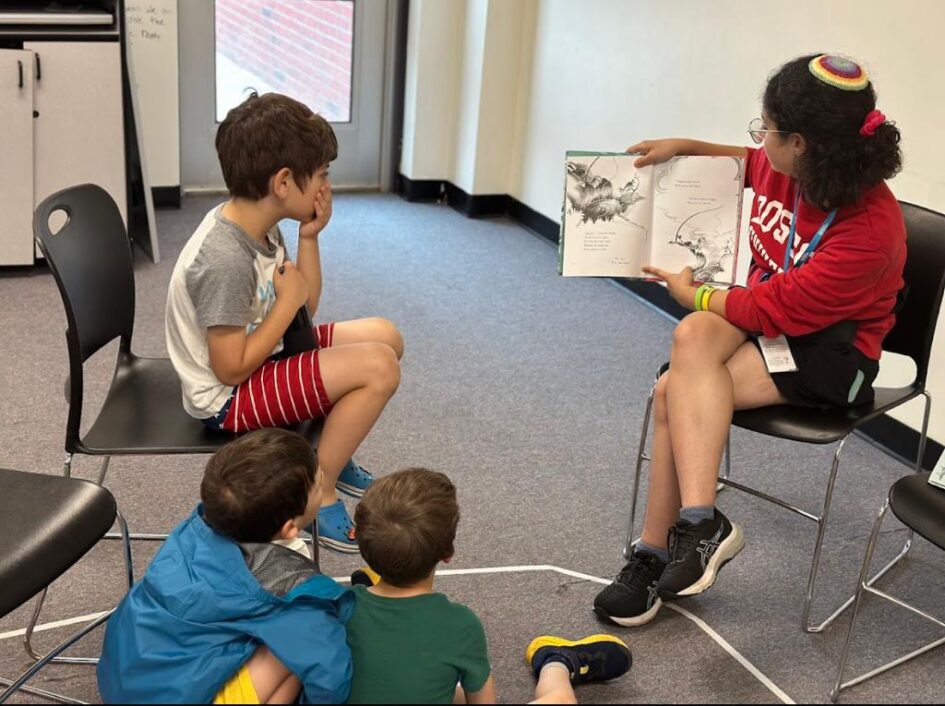At Ramah We All Belong by Tzviyah Kusnitz, Rosh Tikvah

“For my house shall be a house of prayer for all people.” (Isaiah 56:5)
The Tikvah Program is Ramah’s full inclusion program, giving campers with a range of disabilities a warm and accepting place at Ramah. Tikvah is for those with visible and invisible disabilities, such as autism, ADHD, mental and physical health challenges, and learning disabilities. Campers are in the same edot (bunks) and chugim (electives) as their peers and receive individualized accommodations in order to be happy and successful at camp. Some of the accommodations we have offered are one-on-one staff, fidget tools, headphones and earplugs, outdoor quiet seating during lunch, and a large sensory space.
Our sensory space, located in the dance studio, is a quiet environment for campers to take short breaks away from the chaos and loudness of camp. There is space to run around and burn off energy, pillows and beanbags to rest on, various fidgets to calm down or meet sensory needs with, and a tent to hide away in to get some space from others.
In addition to working with campers, we also have a small but mighty vocational education program for adults with disabilities. This summer, we had two Voc Ed staff members, one for one week and one for the entire summer. Voc Ed staff have on-the-job training and participate fully in the camp community. Some of the jobs they had were setting up the chadar ochel (dining hall) for lunch, handing out chatif (snack), preparing Shabbat bags for families, assisting with chugim and limud (learning), and even teaching sign language!
Tikvah is a large step in the right direction for fuller inclusion of people with disabilities in the workplace. One of our Voc Ed staff members says as he reflects on this summer that he enjoyed working with campers and would work at camp again every summer. Our other Voc Ed staff member said camp is “a more tight knit community” and he felt accepted into the community as someone with disabilities. He added that this level of inclusion is “something [he] like[s] to see” and “it’s not just something [he] see[s], but he feel[s],” and that he hasn’t felt like this in other communities. And I see and feel it, too. We have come a long way as a society surrounding inclusion of people with disabilities. When I was a camper growing up at a different camp, children with disabilities were either off to the side with few or no friends, or not at camp at all. I have been so impressed with the dedication for equity and compassion all of the staff have shown towards our campers and each other this summer.
Working with Tikvah has been an amazing experience for me. I’ve gotten to help campers who may not have been successful at other camps have the summer they deserve. And I’ve gotten to see campers and staff grow tremendously over the summer, in a week, and just a day.
Ben Azzai taught: “Do not disdain any person. Do not underrate the importance of anything for there is no person who does not have their hour, and there is nothing without its place in the sun,” (Pirkei Avot). Inclusion at Ramah has been unlike anything else I have seen. One camper can’t go to an activity outside? We move the activity inside for the afternoon. Tefillah (prayer) is too loud for another camper? They sit to the side with headphones and can still participate.
Every camper is important. Every camper has a friend. Everyone has a place at Ramah, and I am so grateful to be a part of it.